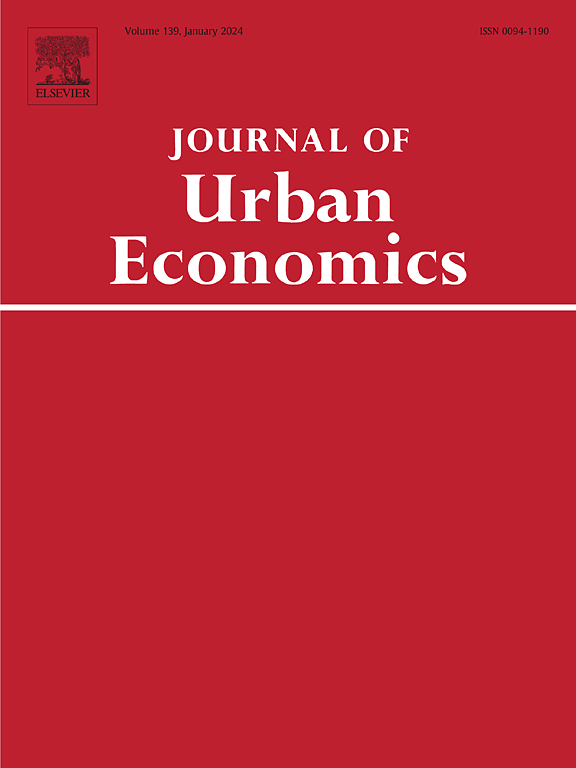Elasticities and tax incidence in urban ridesharing markets: Evidence from Chicago
IF 4.8
1区 经济学
Q1 ECONOMICS
引用次数: 0
Abstract
Over the past decade, many U.S. cities have imposed taxes on Uber and Lyft, leading to debate over the impacts and incidence of these policies. This paper answers three questions about these taxes: (i) How do ridesharing taxes impact trip prices and quantities? (ii) What are the implied market supply and demand elasticities, and (iii) Who bears the burden of ridesharing taxes? Using data from Chicago, I show that ridesharing demand is inelastic in both gross terms, and relative to supply. Accordingly, 89% of the city’s ridesharing tax is passed through to passengers. From a distributional standpoint, travel survey data suggest that ridesharing taxes are roughly as progressive as the federal income tax schedule. Finally, back-of-the-envelope calculations informed by these results suggest that ridesharing taxes of the size typically seen in the U.S. are unlikely to generate meaningful improvements in congestion or air pollution.
城市拼车市场的弹性和税收:来自芝加哥的证据
在过去的十年里,许多美国城市都对优步和Lyft征税,引发了对这些政策的影响和发生率的争论。本文回答了关于这些税的三个问题:(1)拼车税如何影响出行价格和数量?(ii)隐含的市场供给和需求弹性是什么? (iii)谁来承担拼车税的负担?我利用芝加哥的数据表明,无论从总量上还是相对于供给而言,拼车需求都是非弹性的。相应地,该市89%的拼车税转嫁给了乘客。从分配的角度来看,旅游调查数据表明,拼车税的累进程度与联邦所得税计划大致相当。最后,根据这些结果进行的粗略计算表明,美国典型的拼车税规模不太可能对拥堵或空气污染产生有意义的改善。
本文章由计算机程序翻译,如有差异,请以英文原文为准。
求助全文
约1分钟内获得全文
求助全文
来源期刊

Journal of Urban Economics
Multiple-
CiteScore
10.60
自引率
4.80%
发文量
64
期刊介绍:
The Journal of Urban Economics provides a focal point for the publication of research papers in the rapidly expanding field of urban economics. It publishes papers of great scholarly merit on a wide range of topics and employing a wide range of approaches to urban economics. The Journal welcomes papers that are theoretical or empirical, positive or normative. Although the Journal is not intended to be multidisciplinary, papers by noneconomists are welcome if they are of interest to economists. Brief Notes are also published if they lie within the purview of the Journal and if they contain new information, comment on published work, or new theoretical suggestions.
 求助内容:
求助内容: 应助结果提醒方式:
应助结果提醒方式:


